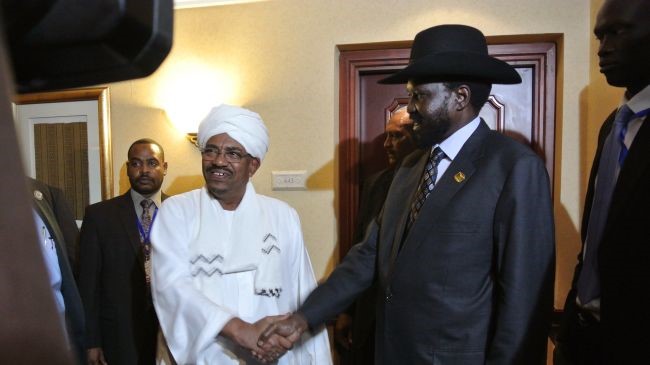 Sudanese President Omar al Bashir's April 12 visit to Juba -- his first since South Sudan became independent in July 2011 -- is little more than a gesture meant to downplay international concern over future oil disruption. During the visit, al Bashir and South Sudanese President Salva Kiir Mayardit likely will discuss border demarcation and other sensitive security issues, but constraints on both sides will hinder meaningful cooperation. However, Juba and Khartoum have a mutual interest in resuming South Sudanese oil production, which generated some 350,000 barrels of oil per day prior to being shutdown over a transit fee dispute.
Sudanese President Omar al Bashir's April 12 visit to Juba -- his first since South Sudan became independent in July 2011 -- is little more than a gesture meant to downplay international concern over future oil disruption. During the visit, al Bashir and South Sudanese President Salva Kiir Mayardit likely will discuss border demarcation and other sensitive security issues, but constraints on both sides will hinder meaningful cooperation. However, Juba and Khartoum have a mutual interest in resuming South Sudanese oil production, which generated some 350,000 barrels of oil per day prior to being shutdown over a transit fee dispute.
South Sudan resumed oil production April 6, when Unity state's Thar Jath field came back online, and Juba has been optimistic in how quickly high-levels of production can be reached. South Sudanese Oil Ministry officials have said that an initial 200,000 barrels per day can come back online by April 15, with oil reaching the export terminal in Port Sudan by the end of May.
However, it is unclear if South Sudan can follow through with its ambitious pace. The only way the country can export its oil is through Sudanese pipelines. Juba has courted investors to try to finance the construction of a second pipeline, which would pass through Kenya, but has not been able to attract interest. Juba also has considered transporting crude through Ethiopia to Djibouti by truck, but trucks would only be able to carry a few thousand barrels per day.
In any case, South Sudan probably cannot afford to finance any such projects on its own. Prior to the shutdown, which lasted for 15 months, 98 percent of South Sudan's revenue was derived from oil exports. Naturally, halted production began to drain the country's foreign exchange reserves -- had Juba and Khartoum not reached an agreement, South Sudan could have exhausted its foreign exchange reserves by the summer.
Khartoum likewise depends on South Sudanese oil financially. Sudan retained only one-fourth of its oil production capability after South Sudan became independent, so it has had to compensate lost oil revenue by leasing its pipelines. In other words, Sudan needs oil production to resume nearly as much South Sudan does.
Notably, the meeting also comes ahead of Khartoum's power transition. Al Bashir is expected to step down in 2015, but his regime will have to establish a stable succession plan if it is to remain in power. And it will have to do so amid mounting pressure from the international community, internal opposition, Darfuri rebel groups and South Sudan. Khartoum has attempted to ease some of this pressure -- it has negotiated an agreement with a Darfuri rebel group and has released some political prisoners -- but the dispute with South Sudan, particularly with regard to the Abyei oil fields, will continue to threaten the Sudanese government.
Thus al Bashir's visit does not represent a major shift in relations between Sudan and South Sudan. But it is clear that both sides understand the importance of reaching an agreement, no matter how tenuous it may be. The fact that neither country can profit from oil production without the other necessitates cooperation. Bilateral relations nonetheless will remain unstable, as will the border, where rebel groups and state security forces continue to clash.
Courtesy : Stratfor (www.stratfor.com)